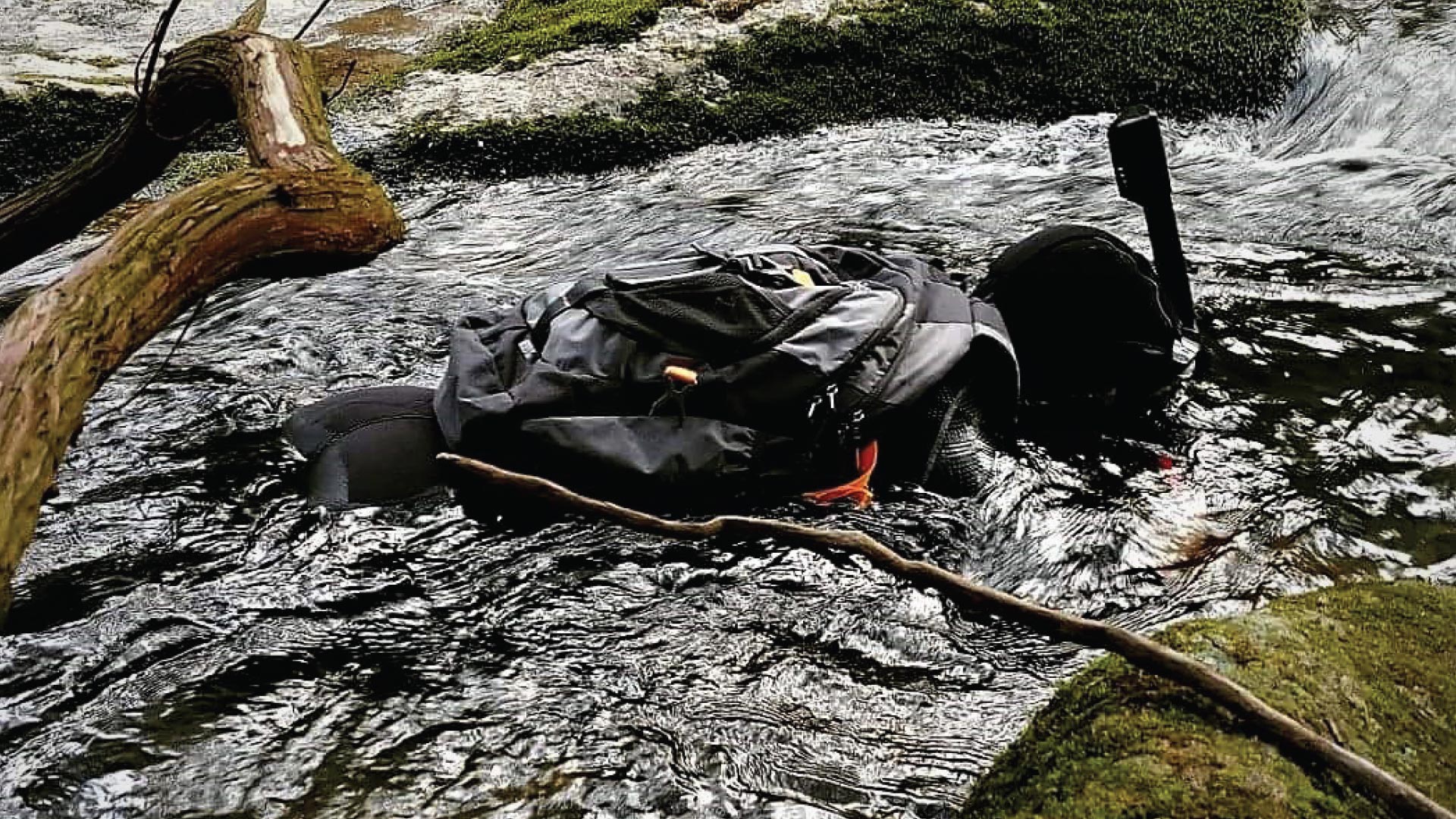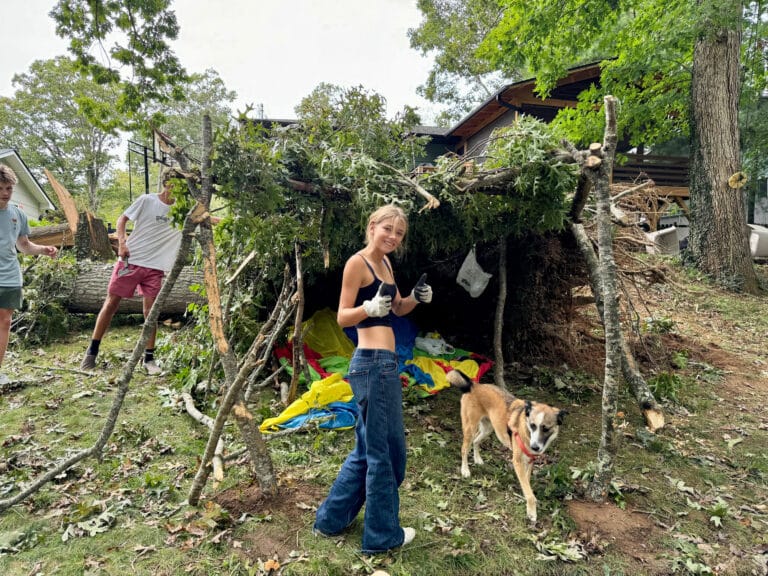Kevin Merrill is changing the way we see rivers.
Kevin Merrill is happiest in a clear, flowing stream, poking around an eddy with a diver’s mask sucked tight against his face. He’ll lie perfectly still, sometimes for over an hour, until the fish get comfortable and swim right up to him.
Merrill is founder of Oxbow, Western North Carolina’s only river snorkeling outfitter, and has made it a mission to get more kids and adults exploring Southern Appalachia’s creeks and rivers.
Merrill particularly loves the West Fork of The French Broad River, where a diversity of fascinating critters abound, like the hellbender, North America’s largest salamander. At other times, he and his teenage daughters hike into the mountains and bodysurf down gushing tributaries.
As a child growing up in Transylvania County, Merrill spent most of his time with his grandfather fishing, hunting, and exploring the outdoors. “He’d wake us up at eleven p.m. to go coon hunting,” Merrill says. “I’d sit in the back of the pickup truck on top of the box. He’d sell those hides for $5 a piece. Mountain folk had to do whatever was necessary to survive.” Merrill remembers a time his grandpa returned home from market with 10 beagles, four coonhounds, a shotgun, and a banjo.
It was his childhood in the wild that inspired Merrill to pursue a degree in freshwater biology. Eventually Merrill became the curatorial assistant at a zoological museum and was headed for a career with the Fish and Wildlife Service when his grandfather fell ill. He returned to the Southern Appalachians to care for him and to embark on a new adventure in teaching.
As a teacher, Merrill asked himself, “How do I get folks outside and interested? I had all these good ol’ boys that like to go outside and shoot things.”
So Merrill brought his students on fish surveys. They found 21 species of fish in Nichols Creek on the edge of Brevard. He soon after founded a hiking club which morphed into a naturalist club once he showed up with microscopes and cameras.
“That’s how Oxbow evolved,” Merrill says. Today the thrill of rolling down a river on your stomach is attracting more customers. Merrill plans to expand his business and educate a new generation of conservationists.
The rivers in the Southern Appalachians are still relatively healthy. The proliferation of sediment-sensitive bivalves, particularly the elktoe, is an indicator of water quality, he says.
“We’ve got to make connections between water and land,” Merrill warns. “I was exposed as a kid. That’s how I made the connection. Education is number one: expose people to the world and what is taking place below the surface.”







